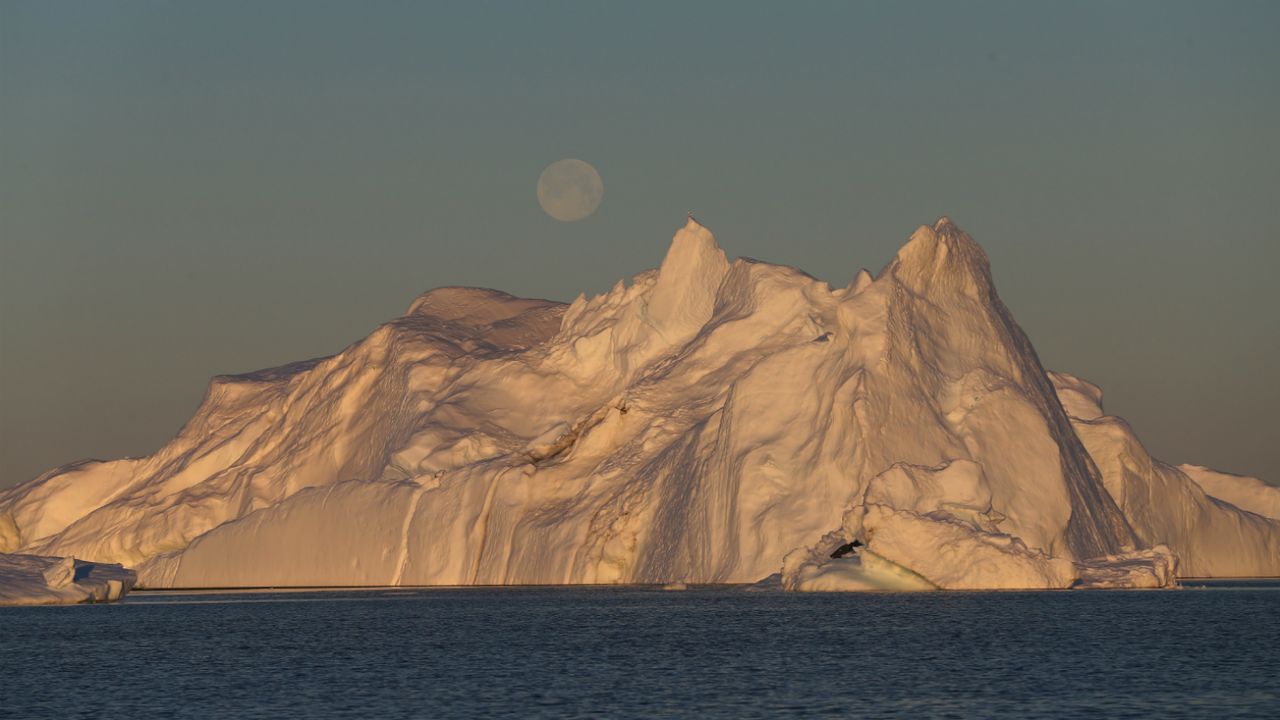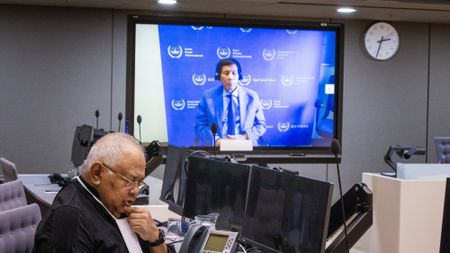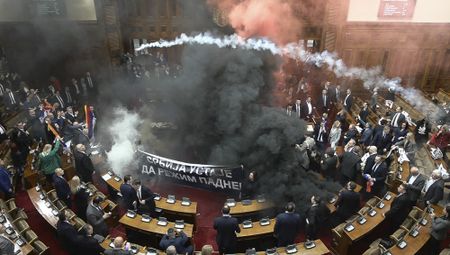Arctic ice machine to halt melting caps
Scientists call for Manhattan Project-scale effort to slow effects of global warming

Scientists have called for a Manhattan Project-sized geo-engineering scheme to create more sea ice and prevent a climate "catastrophe".
Experts believe the increasing loss of ice due to global warming could mean that within the next few decades, the Arctic is essentially free of sea ice for the first time in about 100,000 years.
"[The] loss of sea ice represents one of the most severe positive feedbacks in the climate system," says Dr Peter Gleick, the president of the Pacific Institute in California.
Subscribe to The Week
Escape your echo chamber. Get the facts behind the news, plus analysis from multiple perspectives.

Sign up for The Week's Free Newsletters
From our morning news briefing to a weekly Good News Newsletter, get the best of The Week delivered directly to your inbox.
From our morning news briefing to a weekly Good News Newsletter, get the best of The Week delivered directly to your inbox.
A team of scientists from Arizona State University has suggested using wind turbines to pump water from below the existing sea ice to the surface, where it would freeze more readily.
"Restoring Arctic sea ice thus probably requires a local solution tailored to that part of the climate system," they wrote.
"Happily, though, any prevention of Arctic sea ice loss has the advantage of arresting the most powerful feedback in the climate system and making global climate change easier to deal with."
It would "be a massive undertaking on the scale of the Manhattan Project, which saw the US develop the first nuclear bomb", says The Independent. Researchers estimate it would cost around $500bn (£405bn) to cover more than ten per cent of the Arctic with wind-powered pumps.
Other suggestions include creating clouds by pumping seawater into the air, reflecting light from the sun in space, planting massive forests to absorb carbon dioxide and adding fertiliser to the sea in select areas to increase the numbers of organisms that absorb carbon dioxide.
Writing in Earth's Future, a journal of the American Geophysical Union, researchers warned that despite their plans, hope of a total reversal of climate change would be unwarranted, saying it would still be "too late to prevent loss of summer sea ice in the 2030s" even if humans stopped producing carbon dioxide emissions.
"Restoring Arctic sea ice thus probably requires a local solution tailored to that part of the climate system," they added.
Sign up for Today's Best Articles in your inbox
A free daily email with the biggest news stories of the day – and the best features from TheWeek.com
-
 Book reviews: ‘Red Scare: Blacklists, McCarthyism, and the Making of Modern America’ and ‘How to End a Story: Collected Diaries, 1978–1998’
Book reviews: ‘Red Scare: Blacklists, McCarthyism, and the Making of Modern America’ and ‘How to End a Story: Collected Diaries, 1978–1998’Feature A political ‘witch hunt’ and Helen Garner’s journal entries
By The Week US Published
-
 The backlash against ChatGPT's Studio Ghibli filter
The backlash against ChatGPT's Studio Ghibli filterThe Explainer The studio's charming style has become part of a nebulous social media trend
By Theara Coleman, The Week US Published
-
 Why are student loan borrowers falling behind on payments?
Why are student loan borrowers falling behind on payments?Today's Big Question Delinquencies surge as the Trump administration upends the program
By Joel Mathis, The Week US Published
-
 'Like a sound from hell': Serbia and sonic weapons
'Like a sound from hell': Serbia and sonic weaponsThe Explainer Half a million people sign petition alleging Serbian police used an illegal 'sound cannon' to disrupt anti-government protests
By Abby Wilson Published
-
 The arrest of the Philippines' former president leaves the country's drug war in disarray
The arrest of the Philippines' former president leaves the country's drug war in disarrayIn the Spotlight Rodrigo Duterte was arrested by the ICC earlier this month
By Justin Klawans, The Week US Published
-
 Ukrainian election: who could replace Zelenskyy?
Ukrainian election: who could replace Zelenskyy?The Explainer Donald Trump's 'dictator' jibe raises pressure on Ukraine to the polls while the country is under martial law
By Sorcha Bradley, The Week UK Published
-
 Why Serbian protesters set off smoke bombs in parliament
Why Serbian protesters set off smoke bombs in parliamentTHE EXPLAINER Ongoing anti-corruption protests erupted into full view this week as Serbian protesters threw the country's legislature into chaos
By Rafi Schwartz, The Week US Published
-
 Who is the Hat Man? 'Shadow people' and sleep paralysis
Who is the Hat Man? 'Shadow people' and sleep paralysisIn Depth 'Sleep demons' have plagued our dreams throughout the centuries, but the explanation could be medical
By The Week Staff Published
-
 Why Assad fell so fast
Why Assad fell so fastThe Explainer The newly liberated Syria is in an incredibly precarious position, but it's too soon to succumb to defeatist gloom
By The Week UK Published
-
 Romania's election rerun
Romania's election rerunThe Explainer Shock result of presidential election has been annulled following allegations of Russian interference
By Sorcha Bradley, The Week UK Published
-
 Russia's shadow war in Europe
Russia's shadow war in EuropeTalking Point Steering clear of open conflict, Moscow is slowly ratcheting up the pressure on Nato rivals to see what it can get away with.
By The Week UK Published